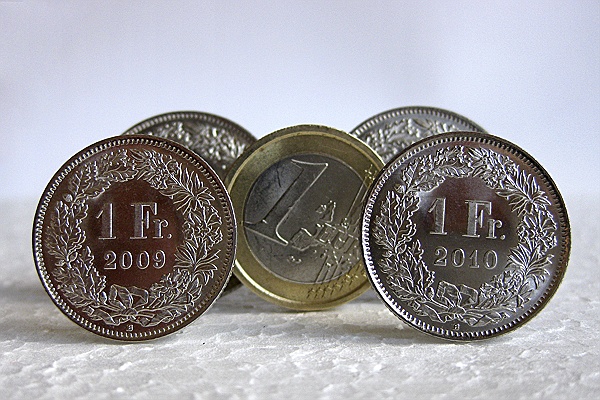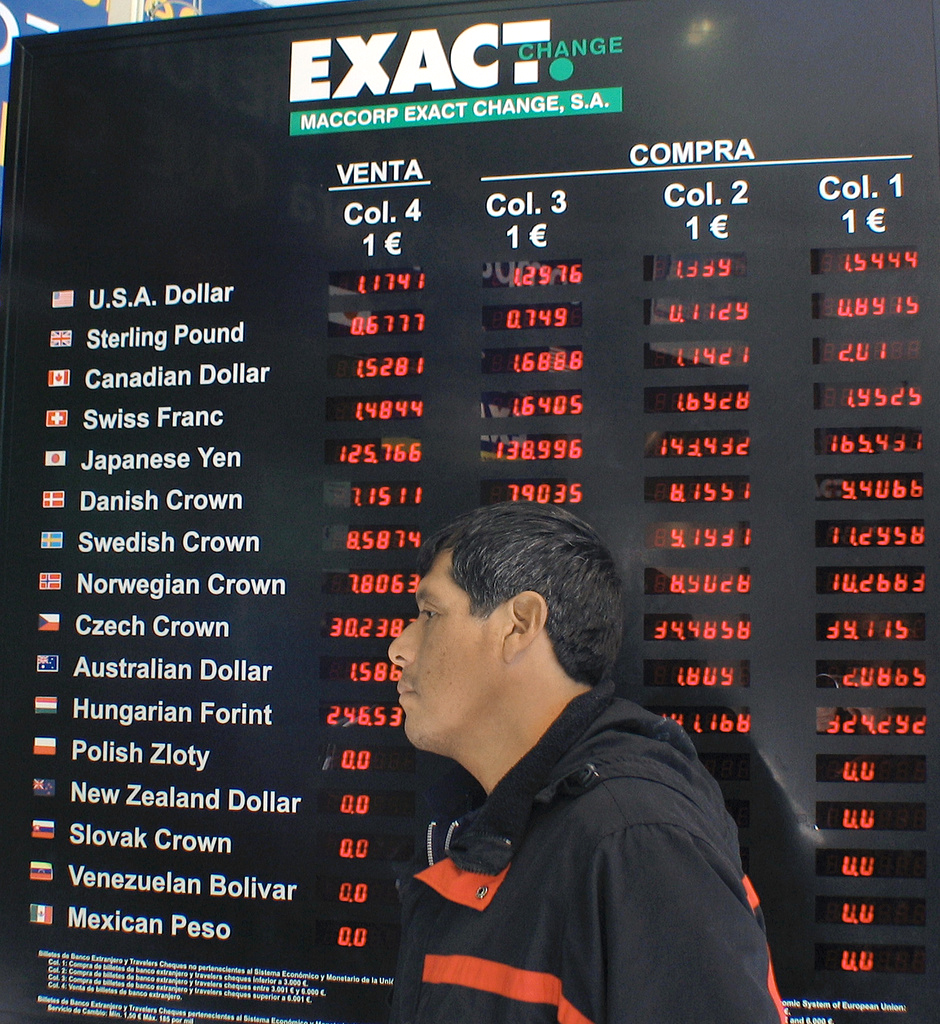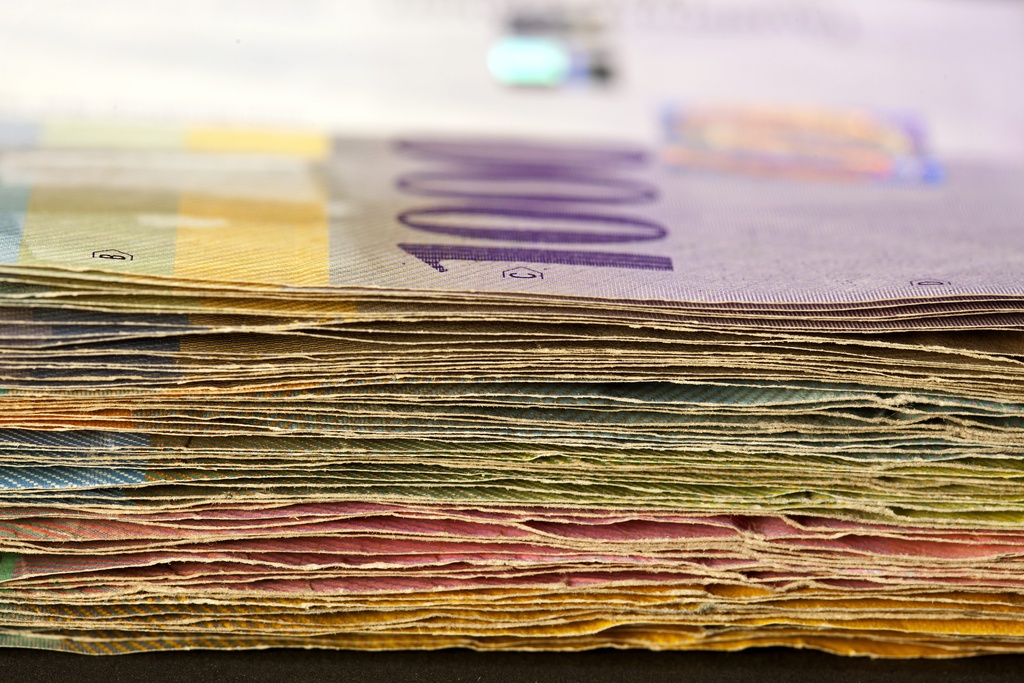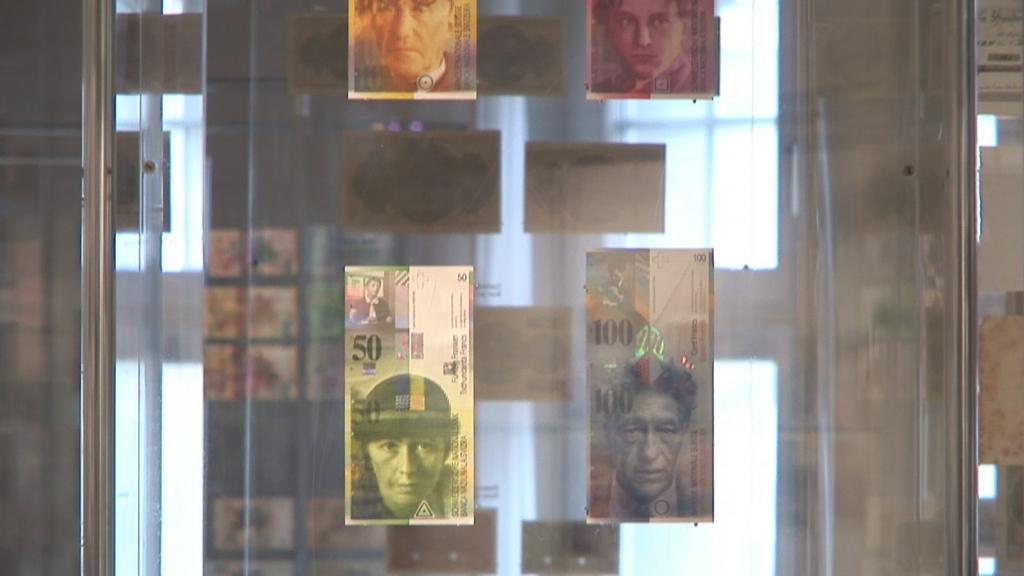Swiss banks deny currency speculation claim

The Swiss banking community has hit back at claims that it has profited from the strengthening franc at the expense of exporters through currency speculation.
The Swiss Business Federation, economiesuisse, supported the banks’ argument that there is no need to renew a “gentleman’s agreement” with the central bank to prevent currency traders from betting against the euro.
The strength of the safe haven Swiss franc continues to haunt exporters and the tourism industry as it reaches new heights against the euro and the dollar.
Prominent business personalities, such as Swatch chief Nick Hayek, industrial groups and the Swiss Association of Small and Medium-Sized Enterprises have all spoken out against the perceived role of speculators in recent months.
“It is clear that the present course of the franc is speculative,” the SME association’s director Hans-Ulrich Bigler told the Tages-Anzeiger newspaper. He called for a return of a 1970s agreement between the Swiss National Bank and individual banks not to take advantage of currency volatility.
Blame game
But Swiss Bankers Association chairman Patrick Odier told swissinfo.ch that such an agreement is unnecessary at present.
“The underlying argument is that there is speculation in the Swiss banking sector,” he said. “But nobody can prove this and our understanding is that the Swiss banks are behaving themselves.”
“Speculation is not at the origin of the problem. It is the structural weakness of the European Union and the different policies of member states that have created the difficulties.”
Odier added that the financial industry, along with other sectors, stands to gain from a strong franc in the long run as it attracts talent and investment to Switzerland. The short term problems have been caused by the violent and dramatic swings in foreign exchanges, he argued.
The Swiss franc has gained around 15 per cent in value against the euro and 10 per cent against the dollar last year. In December 2009, one euro cost around SFr1.50, but the exchange rate dipped below SFr1.25 in recent weeks and still trades below SFr1.30.
Ammunition spent
The Swiss National Bank tried to curb the ascent of the franc last year by buying up massive amounts of euros, but was forced to abandon the policy after racking up losses of SFr21 billion on foreign exchange deals by the end of the third quarter of 2010.
Dismissing rumours of speculative trading by Swiss banks at the expense of exporters, economiesuisse president Gerold Bührer said the fate of the franc now lies outside Swiss borders.
“We no longer have the ammunition to fight the weakening of the euro,” he told swissinfo.ch. “The best solution would be for Europe to stick more rigorously to its stability pact [laying down strict government spending and borrowing measures]. I hope an agreement will come that will create a better atmosphere and breathe more confidence into the euro system.”
The comments of Odier and Bührer, made at economiesuisse’s annual policy setting press conference, coincided with predictions from Brazil about a looming trade war emanating from currency manipulation.
In an interview with the Financial Times, Brazil’s finance minister Guido Mantega, blamed monetary manipulation by China and the United States for inflating the value of many other currencies around the world.
“This is a currency war that is turning into a trade war,” Mantega told the newspaper.
Emergency meeting
The Swiss Business Federation also expressed fears of growing global protectionism at its meeting in Zurich on Monday.
Economiesuisse is also calling on parliament to pass a bill to substantially increase Switzerland’s contribution to the International Monetary Fund’s (IMF) rescue fund from SFr2.5 ($2.57 billion) billion to SFr16.5 billion.
The fund could be used to issue loans to bail out debt ridden countries in the same manner as Greece and Ireland last year.
“Switzerland, as an export-oriented economy, has an interest in the existence of a ‘fire brigade’ to dampen turmoil on forex markets,” Bührer told swissinfo.ch. “We also have a vital interest in increasing our credit line to the IMF.”
The continuing pressure on the Swiss franc has prompted the State Secretariat for Economic Affairs (Seco) to call a meeting of prominent figures from the Swiss economy to thrash out the causes of the problem and to suggest solutions.
The Swiss franc’s traditional status as a safe haven currency was boosted during the latest recession by the relative strength of the Swiss economy compared with other countries.
In December of 2009, a euro cost around SFr1.50, but has set the Swiss back around less SFr1.25 before settling at around SFr1.29 in recent days. The franc is also trading at below SFr1 per dollar.
The Japanese yen and the Australian and New Zealand dollars have also made rapid rises against other currencies.
The US dollar, usually a safe haven currency in times of economic distress, has lost its sparkle this time around as the world’s largest economy falters in its attempts to move out of recession mode.
China has long been accused of artificially keeping down the value of the renminbi by buying up large volumes of foreign currencies, particularly the dollar. Such actions distort both trade and currency exchange rates.
Last year, Japan intervened (bought up foreign currencies) for the first time in six years to arrest the rise of the yen. It has threatened to do so again.
Other countries in the Asian trading bloc, such as India, Thailand and South Korea have made threats to make unilateral currency market interventions.
Last November, the United States Federal Reserve decided on a second round of money printing in an effort to stimulate the economy with fears that it could repeat the exercise this year.
Britain, Brazil and South Africa have also made noises about quantitative easing in recent months, albeit for different reasons.

In compliance with the JTI standards
More: SWI swissinfo.ch certified by the Journalism Trust Initiative





You can find an overview of ongoing debates with our journalists here. Please join us!
If you want to start a conversation about a topic raised in this article or want to report factual errors, email us at english@swissinfo.ch.